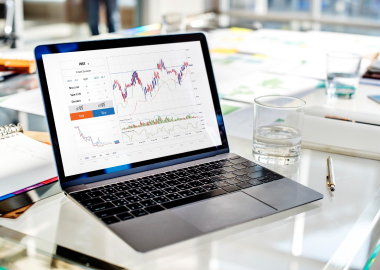Stock Trading
What is Stock Trading?
Stock CFD (Contract for Difference) trading is a financial derivative that enables traders to speculate on the price movements of stocks without actually owning the underlying shares. Here are the key features, benefits, drawbacks, and considerations associated with Stock CFD Trading:
Stock CFD trading is a complex form of trading, and it is important to understand the risks involved before you start trading.
Here are some tips for trading stock CFDs:
-
Only trade with money that you can afford to lose.
-
Do your research and understand the risks involved.
-
Start with a small amount of money and gradually increase your trading size as you gain experience.
-
Use stop-loss orders to limit your losses.
-
Don’t trade emotionally.
Here are some of the benefits of stock CFD trading:
-
Higher potential returns: Stock CFDs offer the potential for higher returns than traditional stock trading. This is because traders can use leverage to magnify their profits.
-
Short selling: With CFD trading, traders can sell stocks short, which means that they can profit if the price of the stock falls.
-
Diversification: Traders can diversify their portfolios by trading CFDs on a variety of stocks.
Here are some of the risks of stock CFD trading:
-
Leverage: Leverage can amplify losses as well as profits.
-
High volatility: Stocks are volatile assets, and CFD trading can expose traders to significant losses.
-
Margin requirements: Traders must maintain a minimum margin requirement in their accounts to trade CFDs. This means that they may have to deposit more money into their accounts if the price of the stock moves against them.
If you are considering trading stock CFDs, it is important to choose a reputable broker that is regulated by a financial authority. You should also compare the fees and charges of different brokers before you open an account.
Please note that this content is for informational purposes only and should not be considered as investment advice.
Our goal is to make the world of finance more accessible and attainable
Trade on Nifty, F&O, Indices, Bitcoin, Gold, Oil, crude oil and 6,400+ other world-renowned markets.
Empower your trading journey with our other trading solutions.
TradeNow's trading solutions empower you to profit from the market, with a diversified portfolio of products and comprehensive trading solutions.

Understanding the Basics of Intraday Trading
Intraday trading, often referred to as day trading, is a fast-paced and exhilarating approach to the financial markets where traders buy and sell financial instruments within the same trading day.

The Rise of Cryptocurrency: A Comprehensive Guide
The rise of cryptocurrency has been nothing short of a financial revolution, reshaping the way we think about money and investments. This comprehensive guide explores the fundamental aspects of cryptocurrencies,

The Future of Trading: Trends to Watch in 2023
As we step into 2023, the world of trading is poised for yet another transformative year. The dynamics of financial markets are in a constant state of flux, driven by

